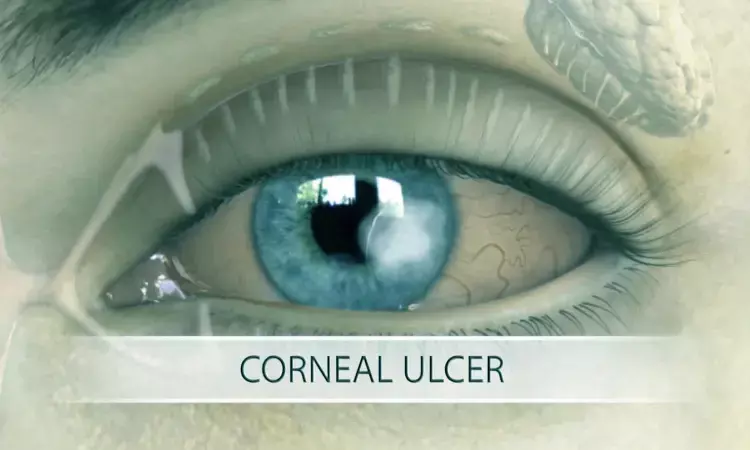- Home
- Medical news & Guidelines
- Anesthesiology
- Cardiology and CTVS
- Critical Care
- Dentistry
- Dermatology
- Diabetes and Endocrinology
- ENT
- Gastroenterology
- Medicine
- Nephrology
- Neurology
- Obstretics-Gynaecology
- Oncology
- Ophthalmology
- Orthopaedics
- Pediatrics-Neonatology
- Psychiatry
- Pulmonology
- Radiology
- Surgery
- Urology
- Laboratory Medicine
- Diet
- Nursing
- Paramedical
- Physiotherapy
- Health news
- Fact Check
- Bone Health Fact Check
- Brain Health Fact Check
- Cancer Related Fact Check
- Child Care Fact Check
- Dental and oral health fact check
- Diabetes and metabolic health fact check
- Diet and Nutrition Fact Check
- Eye and ENT Care Fact Check
- Fitness fact check
- Gut health fact check
- Heart health fact check
- Kidney health fact check
- Medical education fact check
- Men's health fact check
- Respiratory fact check
- Skin and hair care fact check
- Vaccine and Immunization fact check
- Women's health fact check
- AYUSH
- State News
- Andaman and Nicobar Islands
- Andhra Pradesh
- Arunachal Pradesh
- Assam
- Bihar
- Chandigarh
- Chattisgarh
- Dadra and Nagar Haveli
- Daman and Diu
- Delhi
- Goa
- Gujarat
- Haryana
- Himachal Pradesh
- Jammu & Kashmir
- Jharkhand
- Karnataka
- Kerala
- Ladakh
- Lakshadweep
- Madhya Pradesh
- Maharashtra
- Manipur
- Meghalaya
- Mizoram
- Nagaland
- Odisha
- Puducherry
- Punjab
- Rajasthan
- Sikkim
- Tamil Nadu
- Telangana
- Tripura
- Uttar Pradesh
- Uttrakhand
- West Bengal
- Medical Education
- Industry
Aquaporin could be key to repairing corneal defects, suggests new study

Corneal defects often heal themselves, but serious injuries that are left untreated can result in inflammation, infection, ulceration and even blindness.
Aquaporin 5 (AQP5) may be a potential therapy to accelerate the resurfacing of corneal defects, report scientists.The new study provides exciting evidence supporting the involvement of aquaporins in corneal cell proliferation and nerve regeneration.
The study has been published in The American Journal of Pathology.
The cornea, which consists of transparent tissue in the outermost layer of the eye, acts as a barrier against external stimuli. It also plays a key role in vision.
"As a member of aquaporin family, AQP5 is expressed in cornea, which is related to many eye diseases," explained lead investigator Peng Chen, PhD, Department of Human Anatomy, Histology and Embryology, School of Basic Medicine, Qingdao University, Shandong Province; and Institute of Stem Cell Regeneration Medicine, School of Basic Medicine, Qingdao University, Qingdao, China. "If a corneal injury cannot heal in time, it may lead to pathogen invasion and result in corneal inflammation, turbidity, ulcer and even blindness. In previous studies, we found that AQP5 deficiency can cause corneal epithelial punctate defects. There is also increasing evidence that nerve growth factor (NGF) plays a key role in corneal wound healing. AQP5 deficiency can slow down the repair of corneal epithelial injury in mice, but its specific mechanism remained unclear. We hypothesized that AQP5 plays an important role in one or more stages of corneal epithelial regeneration and explored the specific mechanism of AQP5."
Investigators generated an Aqp5 knockout (Aqp5-/-) mouse model and performed corneal wound healing on corneas from which epithelial cells had been scraped away. They used 75 male Aqp5 +/+ mice and 189 male Aqp5-/- mice aged 10 to 12 weeks. Time to corneal epithelial and nerve regeneration was significantly delayed in the Aqp5-/- mice. To determine the role of NGF in the repair of corneal epithelial injury, NGF was injected in the subconjunctival space after corneal epithelium was scraped off in Aqp5-/- mice. The epithelial and nerve regeneration rate were significantly promoted in Aqp5-/- mice with the treatment of NGF, which also improved the recovery of corneal nerve fiber density and sensitivity in Aqp5-/- mice, accompanied by recovered levels of phosphorylated Akt.
The investigators also administered an Akt inhibitor in addition to NGF in Aqp5-/- mice to determine the mechanism of NGF regulating the repair rate of corneal epithelial injury. However, the promotion of NGF induced corneal epithelial and nerve regeneration rate and Akt reactivation was reversed by the Akt inhibitor.
"It is exciting to find that Aqp5 deficiency can affect the nerve regeneration of mice by affecting the activation of NGF and Akt signaling pathways, which is not found in previous studies," commented Dr. Chen. "These results need to be confirmed in a clinical setting, but they provide evidence for the involvement of aquaporins in cell proliferation and nerve regeneration and suggest AQP5 induction as a possible therapy to accelerate the resurfacing of corneal defects."
Aquaporins (AQPs), also called water channels, are channel proteins that form pores in the membrane of biological cells, mainly facilitating transport of water between cells and are expressed in the corneal epithelium. Thirteen different types of AQPs have been detected in mammals. As transmembrane proteins, they play a significant role in maintaining cell water homeostasis.
https://ajp.amjpathol.org/article/S0002-9440(21)00347-3/fulltext
Hina Zahid Joined Medical Dialogue in 2017 with a passion to work as a Reporter. She coordinates with various national and international journals and association and covers all the stories related to Medical guidelines, Medical Journals, rare medical surgeries as well as all the updates in the medical field. Email: editorial@medicaldialogues.in. Contact no. 011-43720751
Dr Kamal Kant Kohli-MBBS, DTCD- a chest specialist with more than 30 years of practice and a flair for writing clinical articles, Dr Kamal Kant Kohli joined Medical Dialogues as a Chief Editor of Medical News. Besides writing articles, as an editor, he proofreads and verifies all the medical content published on Medical Dialogues including those coming from journals, studies,medical conferences,guidelines etc. Email: drkohli@medicaldialogues.in. Contact no. 011-43720751


